Politics as Pro Wrestling: 2022 Edition
We understand the world through stories—heroes and villains, triumphs and tragedies. But the stories implanted in journalists' minds give the news a particular shape.

After more than ten days away from the news sphere, I plan to watch and write about this evening’s televised hearings of the January 6 commission, which promise to be dramatic.
I stress drama because the purpose of this post, a few hours before the hearings, is to list some of the ways in which built-in concepts of drama, spectacle, story arc, and character development affect the “news” that press organizations present, and the way the public responds.
Here are some guides to the drama, and melodrama, of public life.
People have always understood public life through drama.
There is a reason Shakespeare based so many plays on kings and emperors, on wars and plots, on tales of loyalty and of betrayal. And before him Sophocles and Aeschylus. And through the millennia before and after, most of the works of the world’s major religions and cultures.
Even in our democratic republic, the elements of drama, narrative, and showmanship have always mattered. Parson Weems made a difference, with his biography of George Washington. One of The Atlantic’s most influential editors, William Dean Howells, got his literary start with a campaign biography of Abraham Lincoln.
Successful presidential candidates, from Washington and Lincoln through Kennedy and Reagan, had part of their influence through story-telling and myth-making. Even unsuccessful candidates, from William Jennings Bryan to Barry Goldwater to George McGovern to Al Gore, also had their accompanying drama and stories.
Dramatic scheduled events have had their effect. I am not old enough to recall the “Army-McCarthy hearings,” which marked the beginning of the end for the 1950s version of Trump-before-his-time, Senator Joe McCarthy. I am old enough to remember the early-1970s Watergate hearings, which riveted the country for weeks, and marked the beginning of the end for Richard Nixon. I won’t compare Nixon to Trump, as Bob Woodward and Carl Bernstein have recently done here. That is because, as Woodward and Bernstein point out, Nixon was infinitely more sophisticated, intelligent, and law-abiding, plus surrounded by more experienced and honest staffers.
But there is a difference between pure dramatics and public life. And the balance between them matters.
In the book version of Breaking the News, I argued that there were two crossing-the-Rubicon moments in the development of today’s US media—and these were even before Roger Ailes’s creation of Fox News in the late 1990s.
One came in the late 1970s, when Roone Arledge, who had made his name as an impresario/genius at ABC Sports, took simultaneous control of ABC News, and tried to maximize the audience for both. The other, around the same time, was when Don Hewitt’s 60 Minutes on CBS became a significant moneymaker.
Why did these matter? Because they were steps across a divide whose mere existence is barely remembered now. That was the distinction between entertainment-related products, for which the only significant measure is market share and popularity, and news-related products, which arguably have some additional role.
In other walks of life, people still recognize realms where popularity and profit are not the only significant measures: Public education. Public safety and public health. (Firetrucks go wherever there’s a fire, not just to households that have paid up.) Most faith organizations. Libraries and public universities. Public defenders in court. And so on. All are increasingly “market-disciplined” and market-minded in their operations. But none is run for flat-out quarterly returns, like a a crypto company or a restaurant.
All of these beyond-the-market parts of life have become more marketized. But the process has happened fastest and most destructively in the news business.
It’s harder and harder to register the difference between “what will get most attention, most quickly, right now” and “what do people need to know, and what will we be proudest to have been telling them, looking back a decade from now.”
TL;DR More and more of the news business is putting itself in head-to-head competition with entertainment. And in that contest, entertainment will always win. That is what it is for.
There are dramatic arcs that fascinate the press, and drive coverage
I am going to mention four of them.
1. What matters most, is what’s coming next politically.
Here is the way the New York Times framed a story about tonight’s hearings:
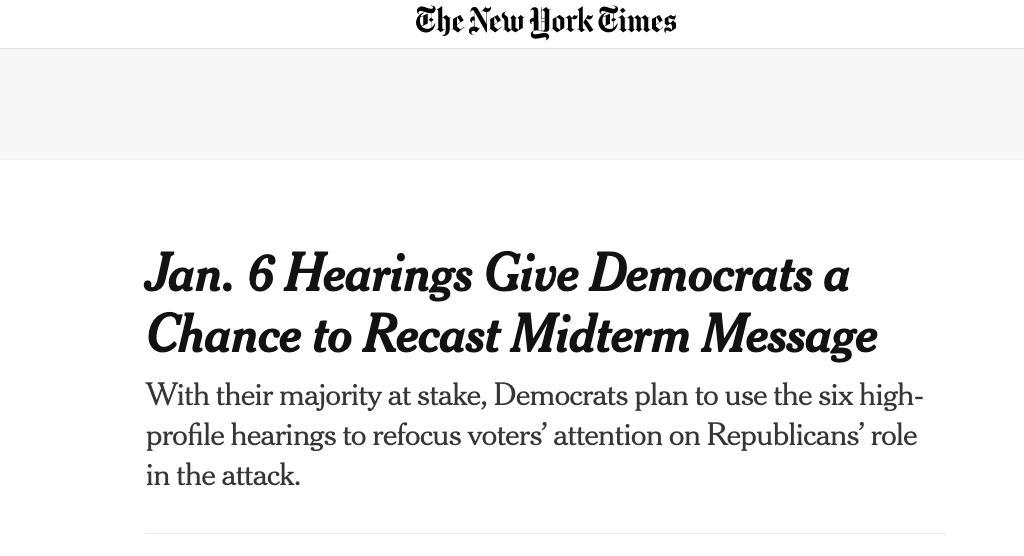
—Something that very few voters have ever wondered: What the January 6 insurrection means for the midterm message. (As opposed to: what January 6 means for American democracy and the nation’s future.)
—Something that fascinates many reporters: What the January 6 insurrection means for the midterm message!!
“Battle of Shiloh: What Will It Mean for Lincoln in the Midterms?” A headline that did not run in 1862.
2. What really matters, is not the local but the national.
Again the framing from our leading paper, about yesterday’s recall vote in San Francisco:
The message is: What matters most about this local election, is what it means for national politics.
I challenge you to find voters in San Francisco, or Californians in general (as I still think of myself), who imagined the election principally that way —as a message to “Democrats and the nation.” It was a low-turnout local election, about local concerns.
Consider this thread from a local California journalist, Brian Edwards-Tiekert, which began:
The idea that the complexities of local life matter mainly as they can be flattened onto the 2-D grid of McConnell-vs-Biden national politics, is a major disservice by the press. But it comes so naturally to the national-politics press that it is almost impossible to resist.
3. There is nothing more intriguing, than intrigue.
I hate to pick on the New York Times, which is so exemplary in so many ways other than its coverage of national politics, but: it treated us to this latest illustration of, “But Jared and Ivanka really meant so well.”
Imagine the author of Othello with this material. Or the writers of House of Cards, or Veep. The hero’s journey, back to respectability!
One difference is, these other writers would have done it with a knowing edge.
From my few years as a White House staffer, and my many years as a reporter, I know this transactional truth: Staffers who talk with reporters, are more likely to get the benefit-of-the-doubt that staffers who don’t.
In related news: this “Jared and Ivanka meant well” story relies on “people close to them” saying that they never bought Donald Trump’s stolen-election lies:
No matter how vociferously Mr. Trump claimed otherwise, neither Mr. Kushner nor Ivanka Trump believed then or later that the election had been stolen, according to people close to them.
Sure.
4. There is nothing less intriguing, than routine. Most of all, modestly positive routine.
The Biden administration has dealt with the unexpected nightmare of Russia’s invasion of Ukraine.
When the same U.S. team was scrambling to handle the collapse of the Afghan government, we had countless stories about their gaffes, failures of planning, and role in the (overhyped) counterpart to the fall of Saigon.
I’ve seen many fewer stories about how the current U.S. team has managed the military, diplomatic, economic, and other ramifications of the first huge land-war in Europe since 1945.
—Does anyone have a specific idea of how this could have been better managed than Biden et al have managed it?
—Are there any stories describing “anatomy of a success,” in comparison to the flood of coverage about the withdrawal from Afghanistan? And as opposed to “gas prices mean threat in the midterms?”
I won’t even go into the realities that:
The US job recovery has been faster than in any other developed country.
Current US inflation is lower than in any other major country.
The adjustments of US economic policy have been more agile than in other countries I’m aware of.
(Links to substantive sourcing for all of these, upcoming.) But, “a narrative of disarray” prevails.
Here is a recent tweet, from a major paper’s lead White House reporter. I am not naming the reporter because it is a cultural rather than individual outlook that matters.
“Unflattering narrative.” Which is easier and buzzier to write about that “imperfect but positive achievements.”
On these themes I could list dozens of links, but for the moment just two. Please read Dan Froomkin, on the contrast between the January 6 committee and the normal media; and Margaret Sullivan, on the difference between the Watergate era and now.
We await tonight’s presentation.
And we’ll see how what we learn tonight matches these ingrained story arcs, or whether a new one might take hold. Bear these stories that are in reporters’ minds, against the ones in your mind, as you watch.




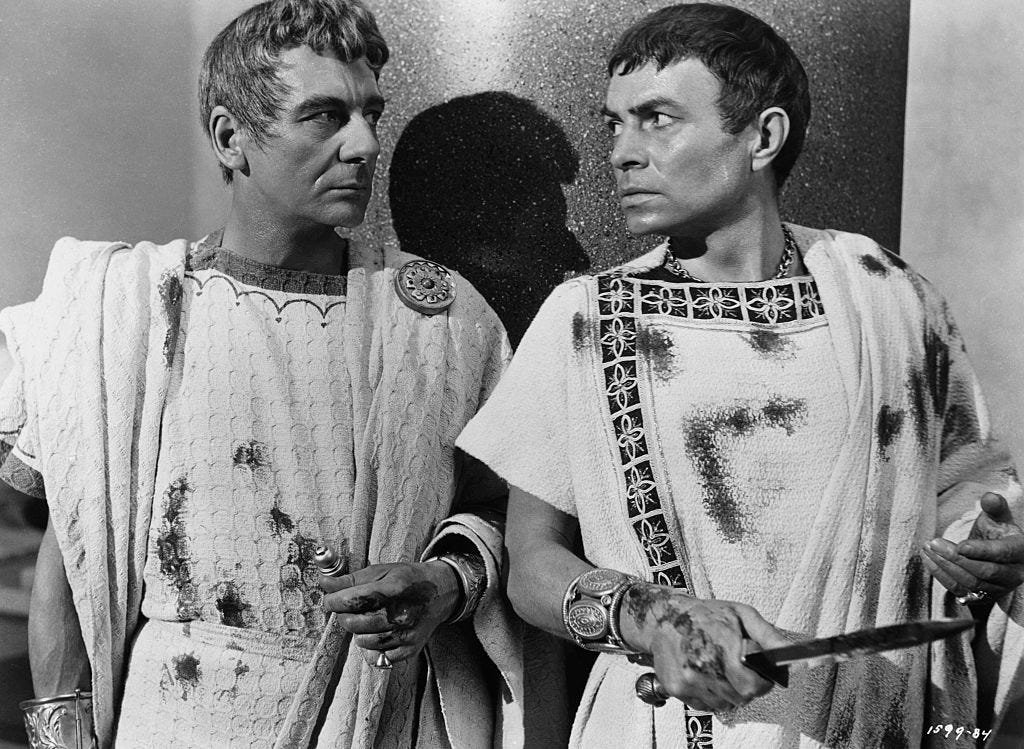
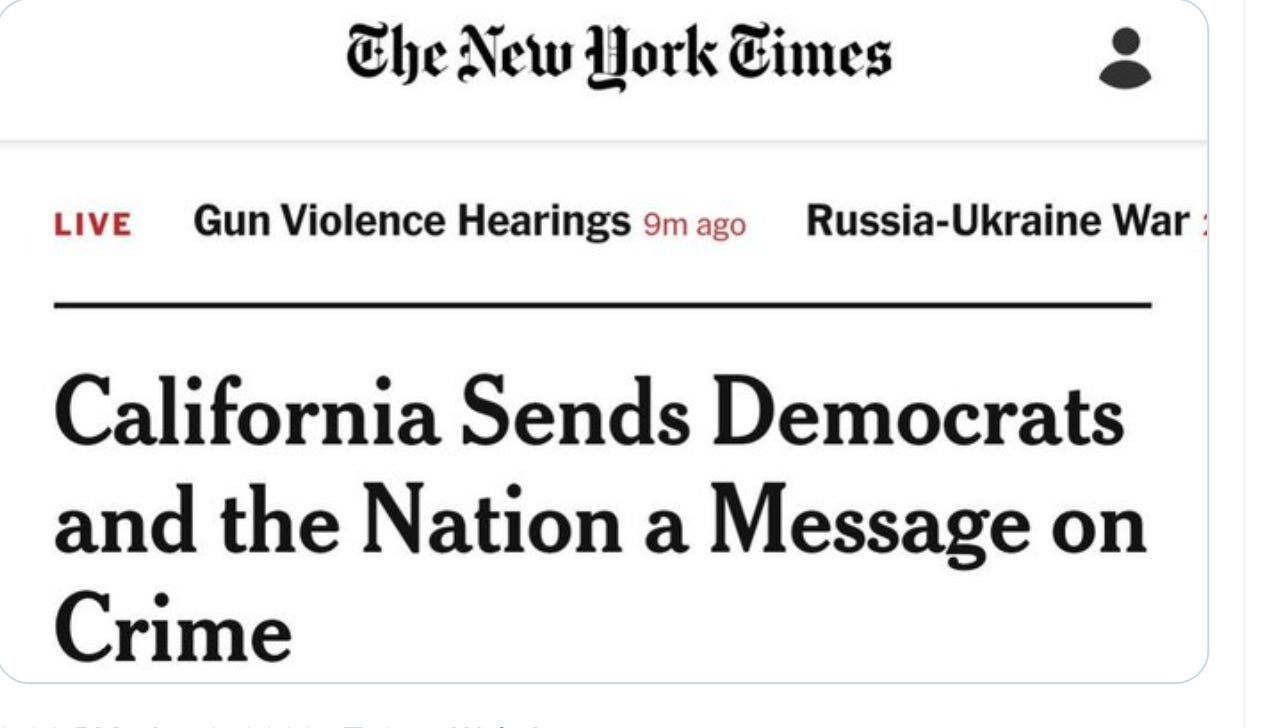
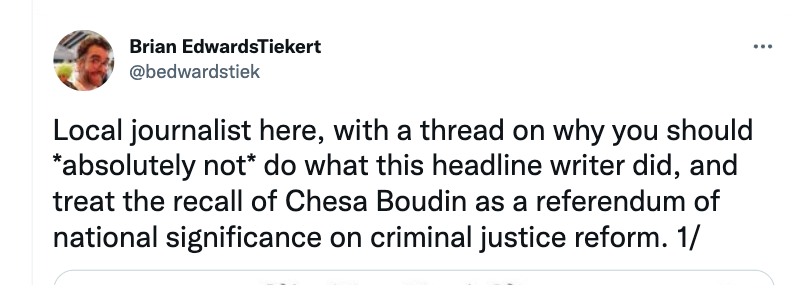
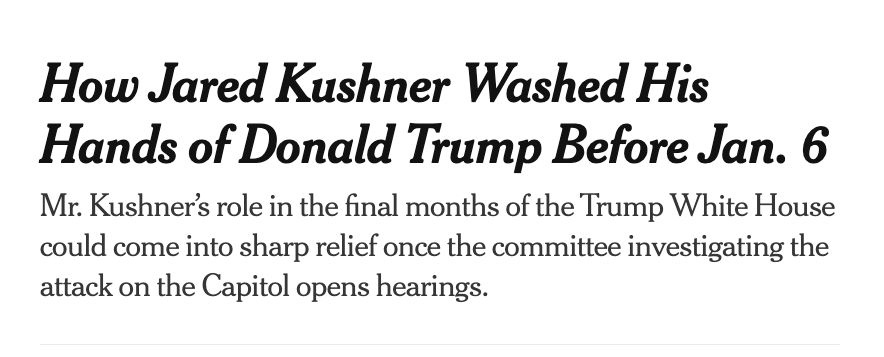

Cutting! Also, accurate. No wonder none of the networks invite Mr. Fallows on air anymore.
That's a fine setup, Jim, and I am going to watch on C-Span just as I imagine you will, too. I was listening to some of the other media outlets but was quickly tired of their preemptive arguments.
Your reference to so-called professional wrestling resonated for me in a sense that might surprise you: I am increasingly conscious of the subsequent rise of relatively serious if still "entertaining" mixed martial arts competitions in which the theatrical chaos of Pro Wresting is replaced by the highly regulated if still brutal confrontation of young men and women in refereed combat.
From that I would simply suggest that the former has always had its parallel in our national politics but that the latter has existed as well, but the 'rules' and 'norms' of political combat have almost always been maintained by the principal competitors for political power whether individuals candidates or the parties they represented (which is not to say that ordinary people and specific communities were saved from harm).
In our political life - and perhaps in our national life - these distinctions are at great risk. I have now listened to Representatives Thompson and Cheney and am both impressed by what I have heard and am hopeful that the committee will be heard loudly and clearly.